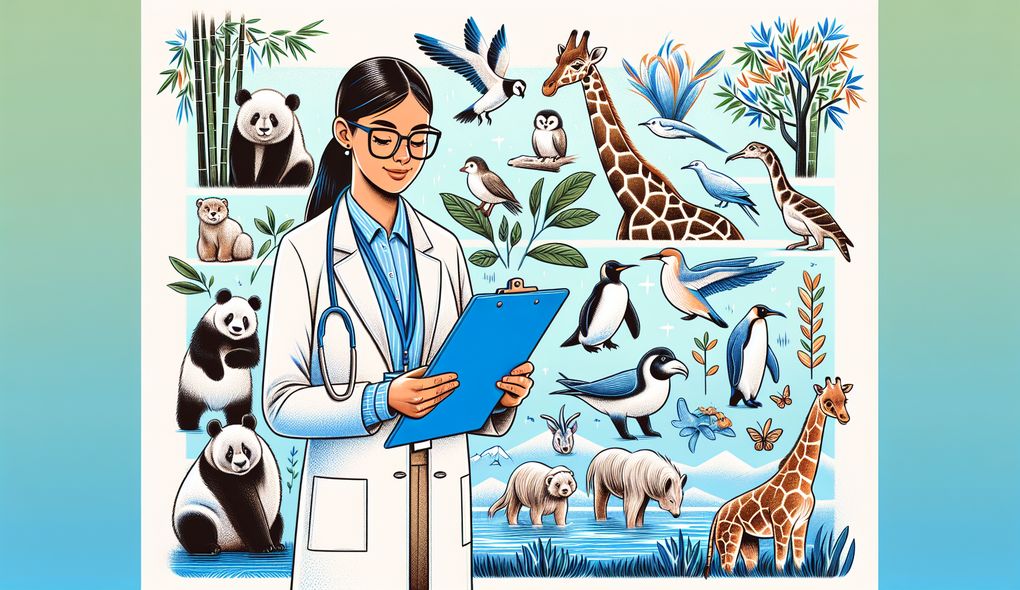What is your approach to managing and leading a team of researchers and technicians?
SENIOR LEVEL

Sample answer to the question:
My approach to managing and leading a team involves open communication, setting clear goals, and being supportive. In past projects, like when we were assessing enrichment techniques for shelter animals, I made sure the team knew what we were aiming for and structured our tasks efficiently. I think it's also crucial to understand the strengths of each researcher and technician, so in that project, I delegated tasks based on who was best for what part. For instance, I had a tech who was brilliant with statistical software crunching our data. Overall, I keep the team focused and motivated by recognizing their hard work and making sure we celebrate our successes, no matter how small.
Here is a more solid answer:
As a leader, I focus on fostering a collaborative environment that leverages the strengths of researchers and technicians. For example, when we researched new dietary standards for livestock, I initiated weekly brainstorming sessions to involve the team in decision-making processes, promoting innovation and ownership of the project. My approach includes mentoring researchers, providing clear expectations, and giving constructive feedback. I manage projects by ensuring alignment with ethical standards and advocate for the best practices reflecting our findings. By implementing regular progress reviews, I ensure that research quality does not deviate from our high standards and scientific integrity is maintained. Recognizing my team's efforts, adapting to challenges, and maintaining clear communication, especially when sharing complex data with non-scientific stakeholders, is integral to successful leadership.
Why is this a more solid answer?
This solid answer provides a good overview by including specific examples of how the candidate leads and manages a team, like initiating brainstorming sessions and mentoring researchers, while ensuring ethical standards. This answer aligns more closely with the responsibilities of the job but still has room for improvement. It could offer a better insight into strategic planning for conducting scientific studies and engaging with a diverse range of stakeholders. It only tangentially touches on these aspects without showcasing past examples of successful stakeholder engagement or policy advocacy, which are critical elements of the job description.
An example of a exceptional answer:
My leadership style is participative and goal-oriented, aligning with my extensive background in animal welfare research. Recognizing individual expertise, I empower my team by involving them in decision-making, like we did when creating a welfare index for farm animals, where their insights shaped our research direction. I've found that fostering mentorship among senior researchers and technicians enhances skills transfer and innovation. Moreover, managing projects like our cross-institutional collaboration on animal behavior required seamless coordination, where I utilized cloud-based tools for real-time data sharing and progress tracking. To ensure that our research translates into practice, I actively engage with policy makers, NGOs, and industry by presenting our findings in a compelling manner, drawing from my scientific writing skills to craft persuasive arguments. I'm committed to the ethical treatment of animals, and this governs our research protocols; my team is well-acquainted with the related legislation and accreditation standards, making compliance a shared priority.
Why is this an exceptional answer?
The exceptional answer demonstrates a comprehensive understanding of the role's responsibilities, with a focus on participative leadership and strategic project management — key to the job description. It includes specific examples of past projects and showcases the ability to engage effectively with stakeholders, thus enhancing its relevance to the job. Furthermore, this answer emphasizes mentorship, the use of technology for project management, and a strong commitment to ethics, aligning with the qualifications and responsibilities of the Senior Animal Welfare Researcher position. It illustrates a proactive approach to leading a research team and to the dissemination and application of research findings in the field of animal welfare.
How to prepare for this question:
- Review your past projects and identify instances where you successfully led a team. Highlight situations where your leadership directly contributed to project outcomes.
- Reflect on how you have actively engaged with various stakeholders in the past. Prepare to discuss instances where you have successfully communicated complex scientific information to a non-scientific audience.
- Ensure you can discuss your experience with specific research tools and methodologies that are applicable to animal welfare research. Be ready to explain your strategies for keeping up with the latest trends and technologies in the field.
- Consider discussing a particular achievement or publication that aligns with the responsibilities of the role. This can solidify your credibility as a seasoned researcher with a track record of advancing animal welfare.
What are interviewers evaluating with this question?
- Leadership and team management abilities
- Communication and presentation skills
- Experience in leading and managing research projects and teams

